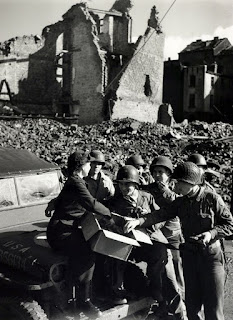My immediate thought on learning of this month's theme was to spotlight an organization I've always intended to become involved in - Random Acts of Genealogical Kindness (RAOGK). But as I've never had the time to volunteer myself, it seemed like an odd choice for this month's blog. I will give it a brief shout-out here before moving on. RAOGK allows individuals to request a genealogical record look-up at a courthouse or a tombstone photo at a cemetery that is located too far a distance to visit in person. Local researchers commit to performing at least one act of genealogical kindness each month. Even though untold resources have now been digitized, we genealogists often really do need someone who can be boots-on-the-ground in places where maybe courthouse and other civil records are not yet fully online or where the cemeteries are sometimes tiny and located on private property. It's a great idea and I hope to one day be in a position to make someone's day by providing them with some treasured bit of genealogical data!
I decided I could be more specific if I instead focus on how kindness was often the default, not the exception, during the WW2 years. My Red Cross Girl heroines relied heavily on the good-hearted local people who could locate hard-to-find resources, explain the area's customs, connect the women to local artists, vendors, and tradespeople. I'm sure I've noted it before, but the Red Cross created and ran thousands of on-base and off-base clubs of varying sizes all over the world during WW2. Sometimes the military designated a specific building on a base to be used for a Red Cross club for the enlisted men, but it was almost always sparsely furnished and undecorated at best. To get a club up and running required the Red Cross Girls to exercise a good bit of ingenuity and persistence, plus call on a certain amount of charm, to obtain everything from paint for the walls to furniture, supplies, games, sports equipment, and on and on. They also relied on off-duty servicemen or local people to perform some of the labor - painting the walls, repairs, moving heavy furniture, hanging decorations, and so on. Granted, many of the men might had more than kindness in mind when they volunteered their off time to helping out the Red Cross Girls, who were often the only female presence in a male-dominated landscape!
 |
| 305th Bomber Group Aero-Club, Chelveston, England |
Here's a few more examples of the kinds of events or clubs overall that required the kindness of strangers, a kindness that so many people didn't hesitate to extend in those uncertain war years -- enjoy!








































